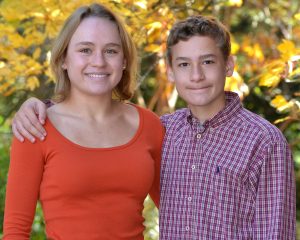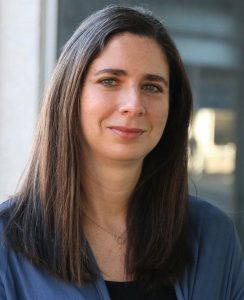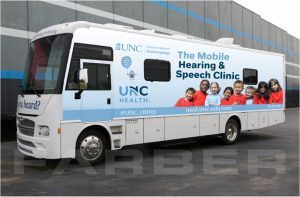By Mark Kimmel, UNC Health Foundation
“The ability to hear is one of those senses that’s critical to our success.”
Those are the words of Linda Cook, who knows first-hand how the ability to hear can shape a person’s quality of life. Cook and the UNC Health Foundation recently created the Cook-Maciejewski Family Fund to improve access to services for children who are deaf or hard of hearing from rural and underserved parts of North Carolina.
Cook was raised in Morganton, a foothills community of the Appalachian Mountains that also happens to be home to the North Carolina School for the Deaf (NCSD). She first became aware of the NCSD during high school when she played basketball against the team that was made up of deaf and hard of hearing students.
Cook, who herself wears hearing aids, also had twin cousins attend the school.
“There was a lot that I missed as a young person (because of hearing loss),” said Cook. “I just didn’t know it at the time.”
Fast forward many years later and her path again crossed with hearing loss when her grandson, Mason, was born deaf 15 years ago.

“We were totally unsuspecting, blown away, I guess,” said Cook. “He was born here (at UNC Hospitals) and so the beautiful thing about that is all newborns are tested before they leave the hospital.”
Once the family got over the initial shock of his diagnosis, they were almost immediately contacted by an Early Intervention Specialist with the NC Infant-Toddler Program (ITP), who would visit the house weekly for two years to work with Mason.
The brain is wired for hearing by the time a child is two years old and early access to treatment made a significant difference for Mason. He received his first cochlear implant when he was 1, and the second came within the next year.
“It’s massively important to get a child a cochlear implant as soon as possible,” said Hannah Eskridge, Clinical Director of Operations for Otolaryngology/Head and Neck Surgery at UNC Health. “If you don’t have access to hearing, then you can’t learn to talk. You have to hear to talk, they’re just connected.”
At the time when Mason was implanted, the target to get an implant was around 12 months. Eskridge’s team now hopes to have a child implanted by eight months because data is showing that implanting a child under 12 months makes a greater impact, specifically on language development.
“The sooner we give them access to sound, the faster their brain can begin to use that sound to develop language similar to their typical hearing peers,” added Eskridge.
Mason, a freshman at East Chapel Hill High School, has been able to engage and maintain relationships with friends and family while thriving within the public school system by virtue of receiving the cochlear implants as an infant.
A call to help
Long retired from the Mecklenburg County Department of Social Services in Charlotte, Cook was the program director for food stamps and Medicaid during her 30-year career and understands the barriers that children and families have for healthcare.

Cook reached out to Eskridge to discuss her intentions of making a financial donation to help UNC Otolaryngology/Head and Neck Surgery. They talked about several possibilities to which they could direct the money, but according to Eskridge, it was evident early on that one rural initiative spoke to Cook.
The initial commitment that the Fund will help build a mobile speech and hearing clinic that will improve access for all North Carolinians.
“We were fortunate to receive a grant that is allowing us to build the (mobile) unit,” explained Eskridge. “To also have the support of Linda’s gift will help launch this project well and reach a lot of children and families.”
The unit will likely take until the end of this year to finish with the goal to launch the program in January 2024.
First in Mobile Hearing
UNC Health’s mobile speech and hearing unit will be the first of its kind in North Carolina and will join a very small number of similar units throughout the United States.
“This can be a model for the country,” Cook said. “Medical establishments are pushing things to the communities and away from the major medical centers.”

The mobile unit will bridge the gap for those in the state who fail to complete the proper steps for hearing screenings. Every baby in North Carolina is screened for hearing loss at birth. If the baby fails the first hearing test, a second screening will take place and then a diagnostic hearing evaluation will follow if there’s evidence of hearing loss.
According to the most recent CDC study in 2020, North Carolina ranks in the lower half of states for ensuring children have the diagnostic testing after a failed Newborn Hearing Screening. Approximately one-third of all infants who failed their newborn screen did not receive a diagnostic evaluation.
“One of the most stated reasons that families don’t go on to a diagnostic is it’s too far to travel,” said Eskridge. “This mobile unit should help to solve that issue in the very near future.”
Reaching other Masons
Mason was fortunate to receive the healthcare he needed at an early age thanks to the access and follow-up care he received from the UNC Hospital’s Pediatric Audiology Team. Mason’s parents, Donna and Matt, played an integral role in making sure he followed the steps to early implementation and dedicated themselves to working hard for him to gain appropriate language access. Mason’s older sister, Langley, has been a huge supporter as well.
“Donna and Matt have been such advocates for our program,” added Eskridge. “The two of them have been on our advisory board, they tell people about the program, they always want to reach out and help. It’s really families like theirs that help us keep reaching other Masons.”
UNC has been implanting children for over 30 years and is an internationally known program. This mobile unit will expand its reach in continuing to be a leader in improving hearing health for children in North Carolina.
“I know that whatever the department does with this remote unit will be positive,” said Cook. “You know there’s no way that it cannot be. The far-reaching potential is exciting.”
